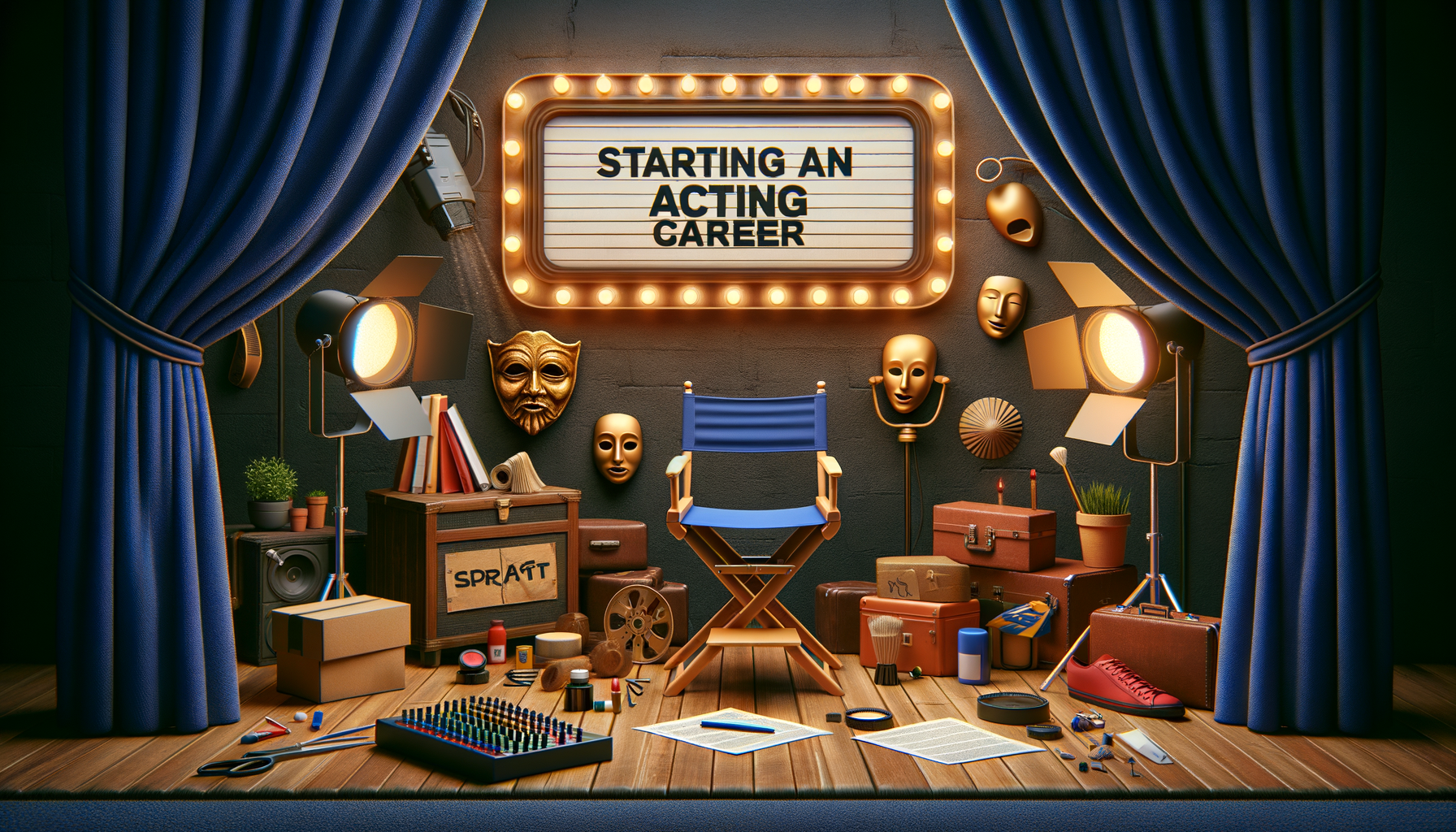Understanding the Basics of Acting
Acting is a multifaceted art form that involves portraying a character in a story. It requires a blend of talent, skill, and dedication. For beginners, understanding the basics is crucial. This begins with recognizing the different styles of acting, such as method acting, classical acting, and improvisational acting. Each style has its unique approach and can be suitable for different types of roles.
Method acting, for instance, involves deeply immersing oneself into a character, often drawing on personal emotions and experiences. Classical acting, on the other hand, emphasizes a more structured approach, often rooted in techniques developed by renowned practitioners like Stanislavski. Improvisational acting focuses on spontaneity and the ability to adapt quickly to changing scenarios.
Newcomers should explore these styles to find what resonates with them. Engaging in acting workshops and classes can provide practical insights and hands-on experience. It’s important to experiment with various techniques to develop a personal style that feels authentic and effective.
Furthermore, understanding the role of an actor in a production is essential. This includes collaborating with directors, understanding scripts, and working alongside fellow actors. Building a foundation in these areas will prepare beginners for the diverse challenges they may face in the acting world.
Developing Acting Skills
Developing acting skills is a continuous journey. For beginners, it’s vital to start with the fundamentals, such as voice modulation, body language, and emotional expression. These elements are the building blocks of effective acting.
Voice modulation involves controlling pitch, tone, and volume to convey the character’s emotions and intentions. Practicing vocal exercises can enhance clarity and projection, which are crucial for both stage and screen performances. Body language is equally important, as it communicates non-verbal cues that add depth to a character. Understanding how to use gestures, posture, and facial expressions can significantly impact an actor’s performance.
Emotional expression is about tapping into one’s own feelings and translating them into the character’s experiences. This requires empathy and the ability to connect with the character’s journey. Beginners should practice these skills regularly, perhaps by participating in local theater groups or acting classes.
Additionally, observing and learning from seasoned actors can be incredibly beneficial. Watching performances and analyzing the techniques used can offer valuable insights into effective acting. Aspiring actors should also consider recording their practice sessions to review and refine their skills over time.
Building Confidence and Overcoming Stage Fright
Confidence is a crucial attribute for any actor. However, stage fright is a common hurdle that many beginners face. Overcoming this fear involves understanding its root causes and implementing strategies to manage it.
Preparation is key to building confidence. Thoroughly knowing your lines, understanding the character, and rehearsing diligently can reduce anxiety. Engaging in relaxation techniques, such as deep breathing or meditation, can also help calm nerves before a performance.
Visualization is another powerful tool. By mentally rehearsing a successful performance, actors can create a positive mindset that boosts confidence. It’s also beneficial to focus on the character and the story, rather than personal fears of judgment or failure.
Joining supportive acting communities can provide encouragement and constructive feedback. Sharing experiences with fellow actors who have faced similar challenges can be reassuring. Over time, regular performances and exposure to different audiences can gradually diminish stage fright, allowing confidence to flourish.
Navigating the Acting Industry
The acting industry is competitive, and understanding its dynamics is crucial for beginners. Networking is a fundamental aspect of building a career in acting. Connecting with industry professionals, such as casting directors, agents, and fellow actors, can open doors to opportunities.
Creating a professional portfolio is essential. This includes a well-crafted resume, headshots, and a demo reel showcasing your range and skills. These materials serve as your introduction to potential employers and should be updated regularly to reflect your latest work.
Auditions are a critical part of the acting journey. Preparing for auditions involves researching the role, understanding the script, and presenting a polished performance. Rejection is a part of the process, and resilience is vital. Learning from each experience and applying feedback can lead to growth and improvement.
Staying informed about industry trends and developments can also be advantageous. This includes understanding the types of roles being cast and the platforms where opportunities are available, such as film, television, theater, and digital media.
Continuing Education and Growth
Acting is an ever-evolving field, and continuous learning is essential for long-term success. Enrolling in advanced acting classes or workshops can help refine skills and introduce new techniques. These programs often provide opportunities to work with experienced instructors and peers, fostering a collaborative learning environment.
Reading books on acting theory and the experiences of renowned actors can offer valuable insights and inspiration. Additionally, attending theater productions and film screenings can broaden an actor’s perspective and understanding of different styles and genres.
Seeking mentorship from experienced actors or directors can provide guidance and support. A mentor can offer personalized advice and share industry knowledge that can be instrumental in navigating a successful career.
Finally, maintaining a passion for the craft is crucial. Acting is a demanding profession, and staying motivated is key to overcoming challenges and achieving personal and professional goals.




Leave a Reply